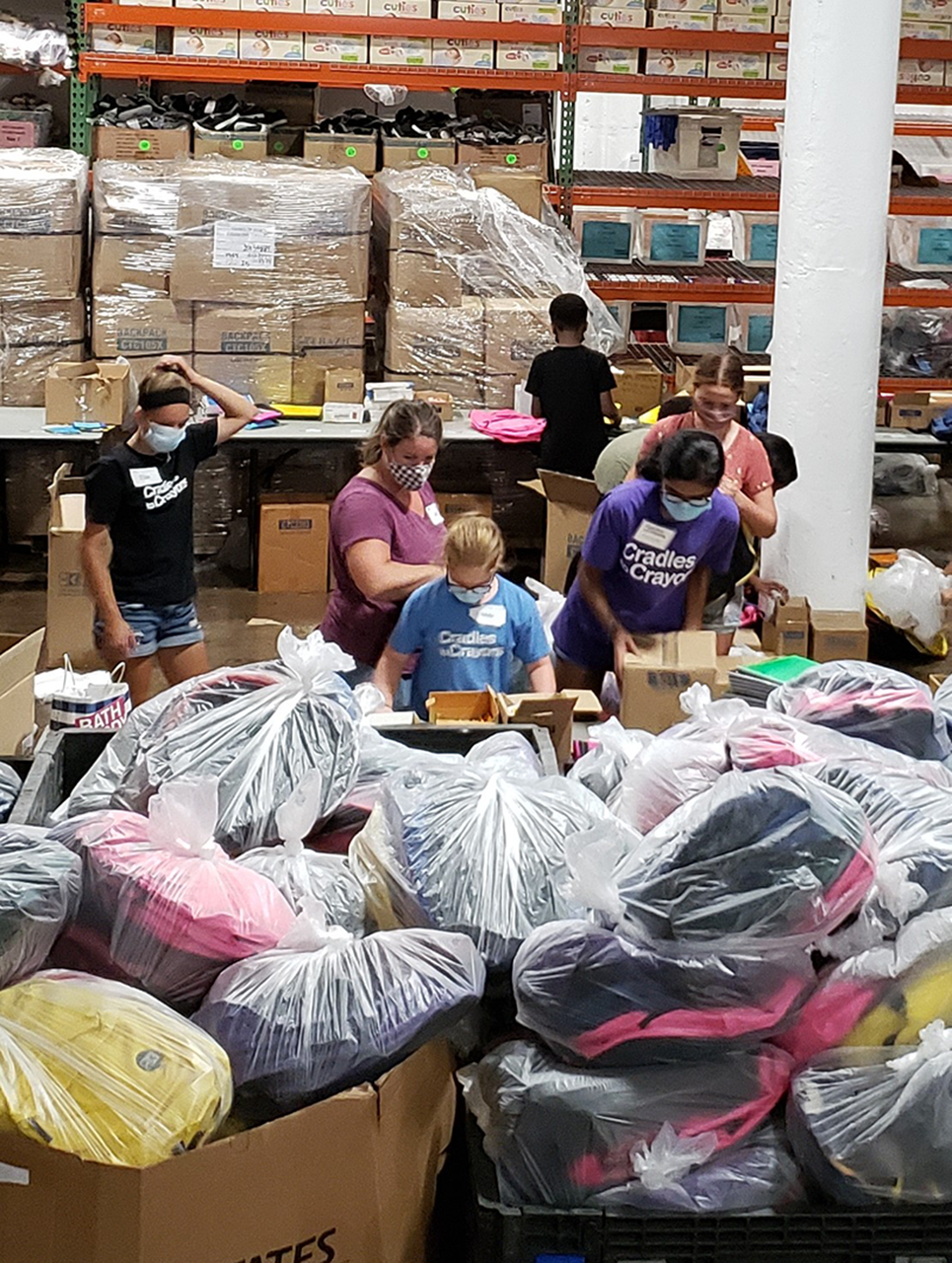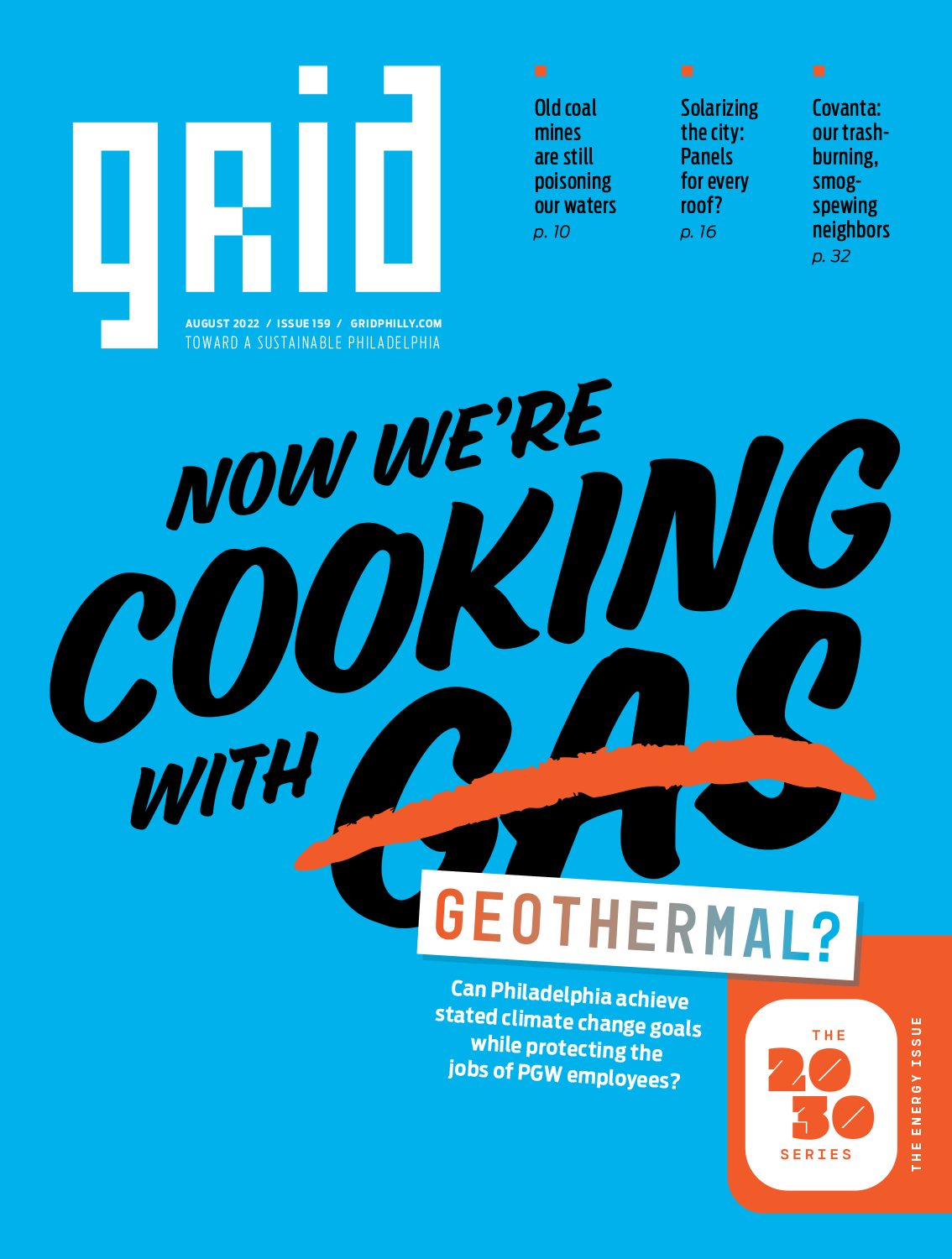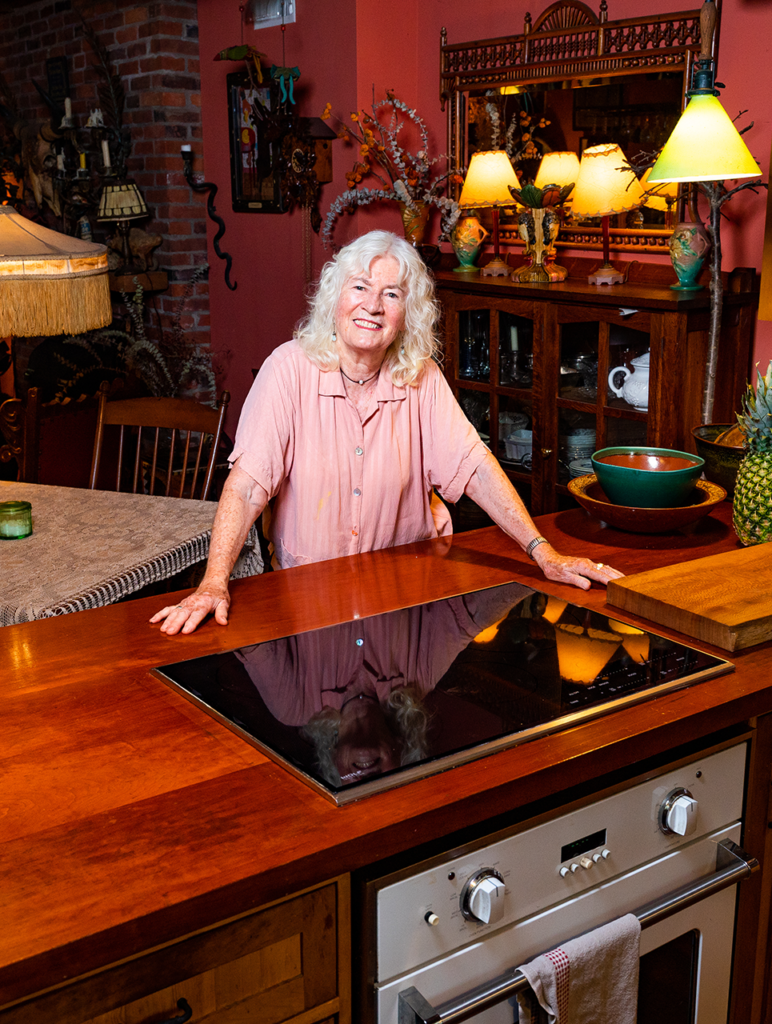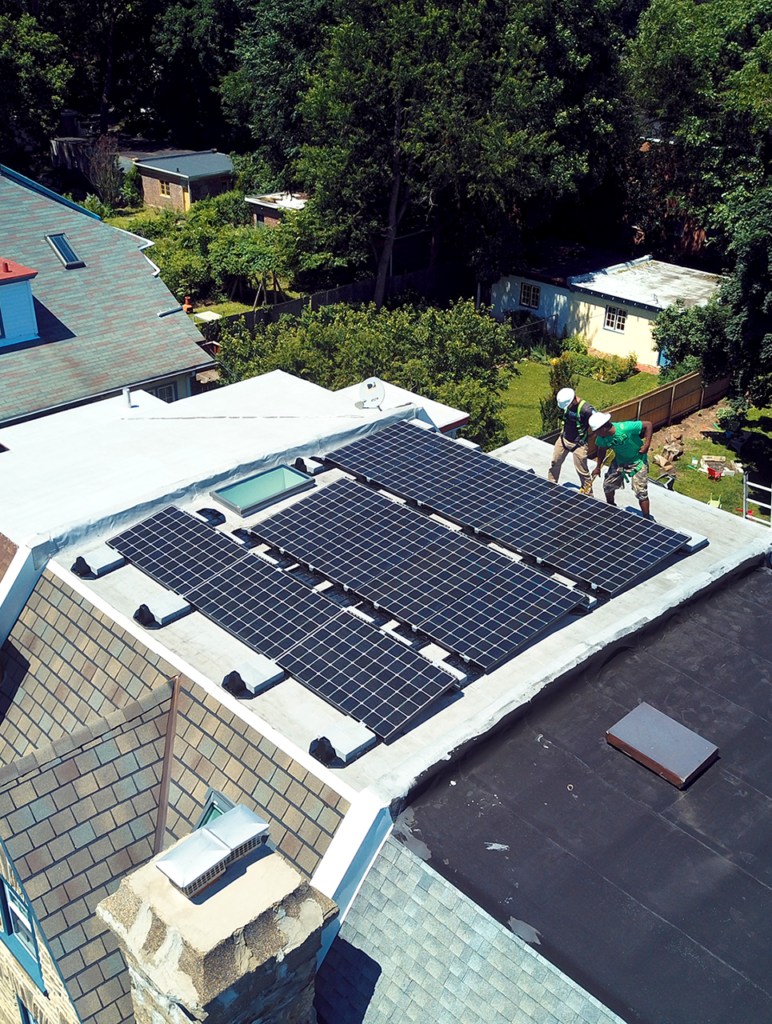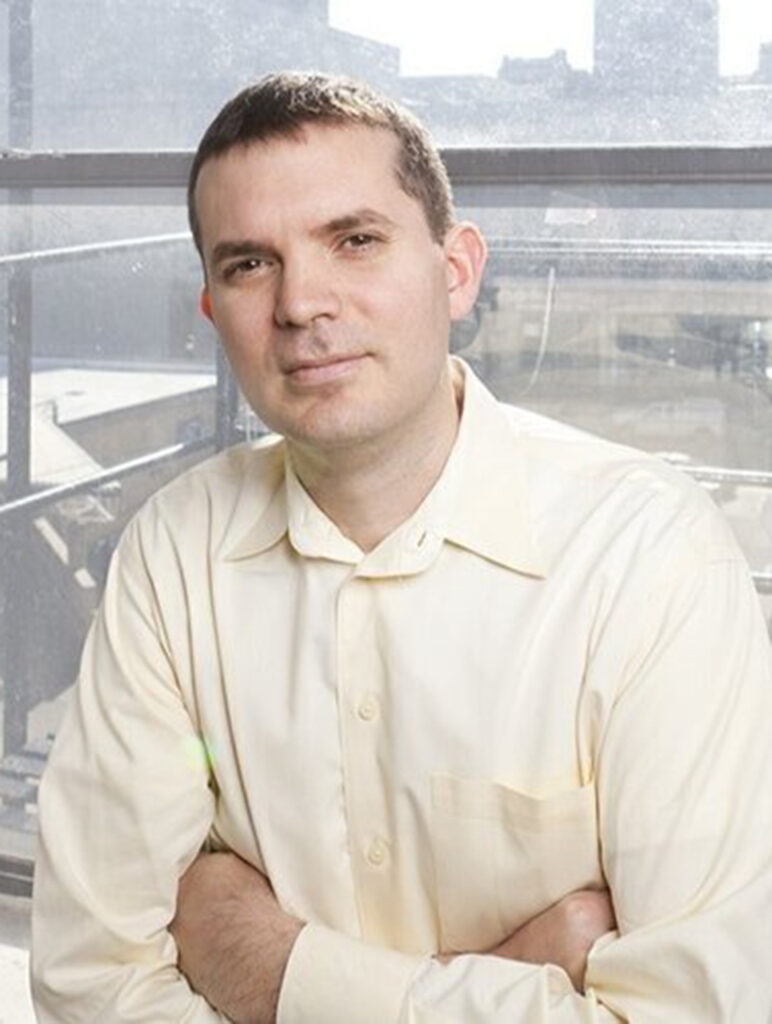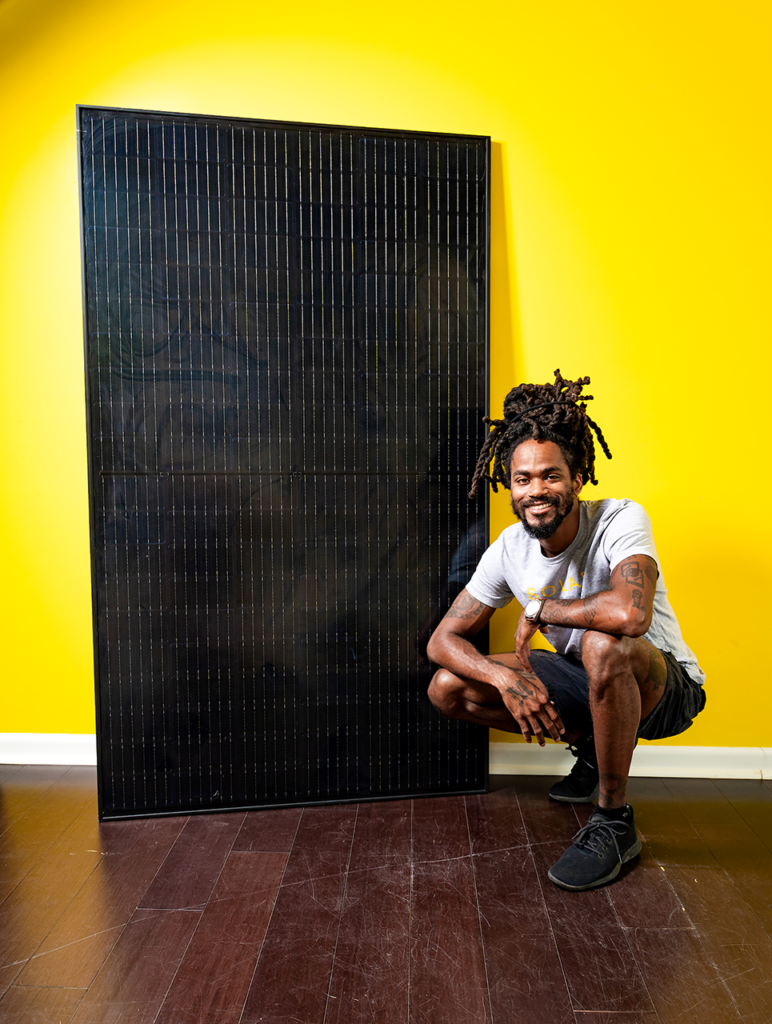The young father made a post on Nextdoor, a virtual neighborhood network, pleading for diapers for his newborn son. Out of work, he had no money to buy them, he wrote, and his partner and baby were due home from the hospital.
“Try Cradles to Crayons,” a neighbor wrote back.
That advice may have helped keep the young family afloat. Begun at a Boston site in 2002 and in Philadelphia in 2006, Cradles to Crayons, a nonprofit in Allegheny West, assists families living with poverty or homelessness.
“We provide everyday essentials for children from ages zero to 12 through service partners like foster care agencies, immigration services, schools, homeless and domestic violence shelters, and community health centers,” says executive director Michal Smith. “That includes clothes, footwear, books and school supplies. Families ask their social worker or case manager to place an order for them. We prefer to work through service providers who know what the family needs.”
Cradles to Crayons stays busy. About 25% of Philadelphians lived below the poverty line in 2017, according to a Pew Charitable Trusts factsheet.
“Philadelphia is the poorest big city in the nation,” says Smith, who has extended the service area to South Jersey. “Some 300,000 children across the region live in poverty.”
It was a huge help during the pandemic. A lot of people were out of work, struggling to pay rent and buy food, let alone coats and shoes.”
— Evelyn Acevado, project coordinator with Puerto Rican Unity for Progress
Evelyn Acevado, 46, project coordinator with Puerto Rican Unity for Progress, a nonprofit serving low-income Camden County residents and a Cradles to Crayons service partner, relies on the latter’s help in cold weather.
“This past winter, Cradles to Crayons provided … lots of shoes, rainboots, hats and gloves,” she says. “It was a huge help during the pandemic. A lot of people were out of work, struggling to pay rent and buy food, let alone coats and shoes.”
“The Camden County Police Department gets in touch with us in emergencies,” Acevado adds. “They’ll say, ‘We have a mom and three kids here burned out of their house.’ We do our best.”
Cradles to Crayons supplies gently used clothes and other items donated by individuals, families, churches, synagogues and corporations brought to their headquarters or left at collection sites throughout Greater Philadelphia.
Volunteers sort donations by gender, age group and season for use.
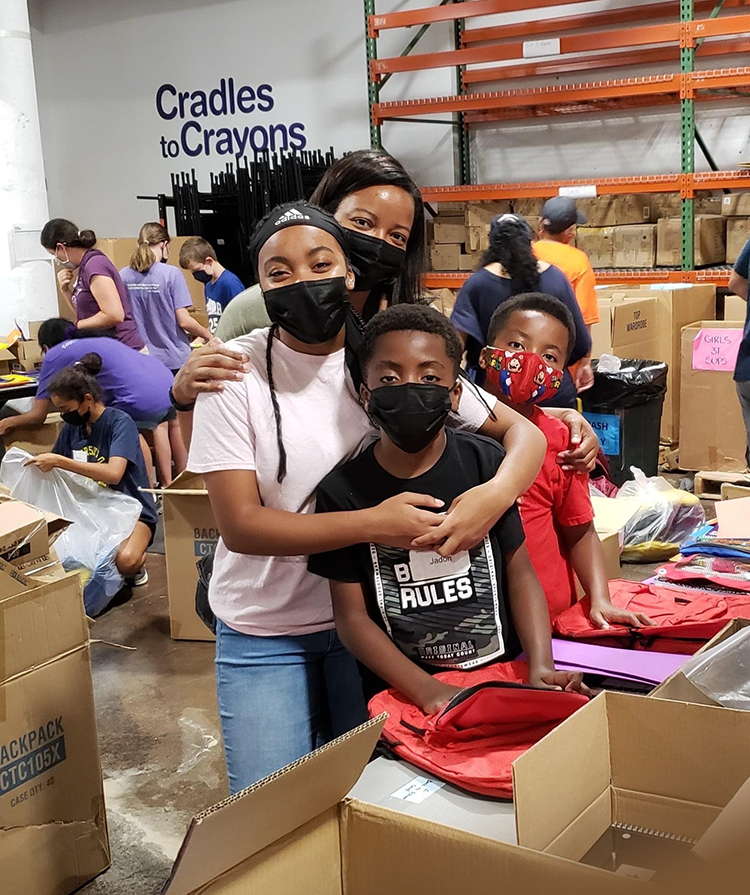
“We check clothes to ensure there are no stains, tears or broken zippers,” Smith says. “We don’t accept clothes with religious symbols because they might not accord with the faith of recipients. Everything is quality-checked four times before it goes out the door.”
Shoes, especially sneakers, get spa-level treatment because they’re often seen as status markers.
“We strive to make them look new,” Smith says. “They’re so important to children.”
On the other hand, some donations are, in fact, new.
“Socks and pajamas must be new [because of hygiene]. Packages of diapers must be unopened,” Smith says, noting that Cradles to Crayons has furnished 3.6 million diapers in Greater Philadelphia since the pandemic started.
“We have a motto,” says Cradles to Crayons volunteer coordinator Melissa Ziegler, 23. “‘Quality equals dignity.’ The clothes should give children the confidence to flourish. Clothes that don’t make the cut go to thrift stores. Nothing is wasted.”
Clothes go into bundles, according to what social workers have ordered.
In addition to clothing, Cradles to Crayons supplies some baby items and bedding.
The organization has a small staff and receives funding from individuals, corporations and foundations, but money stays in Smith’s thoughts. “As executive director, sustaining revenue is in the front of my mind, so we can continue serving children and filling the gaps in the donated items,” she says.
Volunteers power the operation of the Giving Factory, the 26,000-square-foot warehouse, once part of a radio manufacturing complex, where items are received and processed. Pre-COVID, Cradles to Crayons had 2,500 volunteers a month, Smith says, but the pandemic cut that number in half while demand jumped.
“We are grateful for those who have volunteered throughout the pandemic, but since we are a community powered organization, we rely on volunteers to get the basic work done,” she says. “This presents a challenge with volunteer numbers down. Right now we get about 1,000 a month.”
Volunteers, who work two-hour shifts, may tackle anything from packing bundles to wielding pens. “Have a great year!” Chris, 25, a data analyst and volunteer, wrote on a note destined for one of the 50,000 backpacks full of school supplies that Cradles to Crayons gives children in August. Chris added a rainbow from a sheet of stickers. “We’re having a competition to see who can use these stickers most creatively,” he says, nodding toward his colleagues.
Volunteers also prep books. “A lot of kids we serve don’t have a personal library, but they need books in their lives,” Ziegler says. “We check books for marks, cut out pages that show it was a gift to another child and wipe the cover and spine with a Simple Green solution.”
Volunteering seems a win-win situation. “You kind of feel good when you’re in the midst of doing this,” says corporate volunteer Michael Edge, 44, lifting bags of books from a huge bin, “and you get a half-day off.”
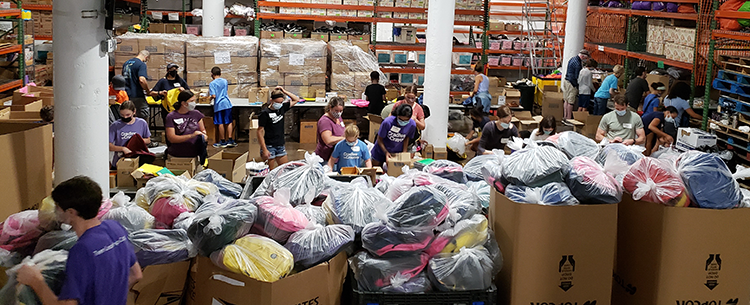
Katherine “Kat” Dice, 25, oversees Giving Factory logistics. “Before donations come in, I plan where they’ll go,” she explains. “Say, we have 26 pallets of diapers arriving. I make sure there’s space for them and volunteers to process them,” says Dice, a Saint Joseph’s University graduate who interned here for two summers.
“I love this organization for different reasons,” Dice says. “It’s the only one I know of that accepts volunteers from age five on.”
“It feels good and it feels bad to help here,” says Joel Larson, 8, sorting clothes with his mother, Julie Larson, and his friend Victor, 9. “You know that they’re poor people. You remember there are people sleeping on the sidewalk.”
“For us, the goal is to not exist,” Dice says, “to see the end of poverty and homelessness.”
To learn more about Cradles to Crayons or to volunteer, visit cradlestocrayons.org/philadelphia or call (215) 836-0958.

